- Understanding Social Media SEO
- Understanding the Link Between Social Media and SEO
- The Role of Social Signals in SEO
- How Social Media Profiles Rank in Search Engines
- Google Analytics as a Traffic Source
- Social Media Links as a Traffic Funnel
- Social Media SEO Strategies for Leveraging Social Media to Enhance SEO
- Using Social Media to Boost Content Visibility
- Building Relationships with Influencers to Increase Link Building
- Creating SEO-Friendly Social Media Content
- Fine-tune Your Publishing Frequency
- Key Social Media Platforms That Impact SEO
- How Facebook and Twitter Influence Your SEO
- The Importance of LinkedIn and Pinterest in Search Rankings
- Measuring the Impact of Social Media on SEO
- Tools and Metrics for Tracking SEO Improvements
- Analyzing Social Engagement and Its SEO Benefits
- Translate Social Data into Content Ideas
- Creating a Comprehensive SEO and Social Media Strategy
- Integrate SEO and Social Media into Your Marketing Strategy
Imagine you’re trying to boost your website’s visibility. You’ve heard that SEO is key, but did you know your social media presence and social media engagement can also play a significant role? In modern digital era, the lines between social networking and search engine optimization are blurring, creating unique opportunities for savvy marketers.
By leveraging your social media channels, you can enhance your SEO efforts and climb the search engine rankings. Whether it’s through sharing quality content, engaging with followers, or utilizing hashtags, each action on social media can contribute to your overall SEO strategy.
Let’s jump into how integrating your social media tactics with SEO best practices can not only increase your online visibility but also drive more traffic to your website.
In the ever-evolving landscape of digital marketing, Social Media SEO and social media optimization have emerged as powerful tools to enhance online visibility and engagement. Social Media SEO refers to the practice of optimizing your social media profiles, posts, and content to improve their discoverability both within social media platforms and on search engines. By integrating search engine optimization (SEO) tactics into your social media strategy, you can increase the chances of your content being seen by your target audience, ultimately driving more traffic to your website.
Exploring the connection between your social media marketing strategies and SEO practices uncovers the potential for boosting your site’s search engine visibility. Understanding social media metrics is crucial in measuring the impact of social media on SEO. This section demonstrates how a strong social media presence can influence your SEO outcomes.
The Role of Social Signals in SEO
Social signals refer to the interactions like likes, shares, comments, and reposts that your social media posts receive on social media platforms. Social media analytics can help track these social signals, providing insights into how your content is performing and how it can be optimized for better engagement. These signals indicate to search engines that your content is valuable, which can indirectly affect your SEO rankings.
- Increased Content Visibility: When your content is shared widely on social platforms, it gains more visibility, which can lead to increased traffic to your website. More traffic often signals to search engines that your website is authoritative and credible.
- Extended Content Lifespan: Social shares can keep your content circulating longer than many other mediums, constantly attracting new viewers and potentially generating ongoing traffic.
- Enhanced Brand Recognition: Regular interaction and visibility on social media strengthen your brand recognition. A recognizable brand can boost the click-through rates from the search engine results pages (SERPs), positively influencing your SEO.
Social media profiles are not only channels for communication and engagement but also key players in SERP rankings. Social media branding is crucial in optimizing profiles for search engines, as it helps establish a consistent and recognizable presence across platforms:
- Direct Listings: Your social media profiles can rank in search engines for branded searches, making them as crucial as your website in maintaining a strong digital presence.
- Control Over SERP Content: By optimizing your social media profiles (e.g., updating business information, posting relevant content), you control more content that appears on the SERPs related to your brand.
- SERP Real Estate: With well-optimized social media profiles, you effectively occupy more space on SERPs, which can help in pushing down negative content and controlling public perception.
By understanding and leveraging the link between social media and SEO, you enhance not only your visibility but also your potential to engage and attract more customers to your website, leveraging these platforms to improve your overall online presence.
Google Analytics as a Traffic Source
Google Analytics is a powerful tool that helps you understand your website’s traffic and behavior. When it comes to social media, Google Analytics can provide valuable insights into how your social media efforts are driving traffic to your website. By tracking social media traffic in Google Analytics, you can see which social media platforms are driving the most traffic, which content is resonating with your audience, and how social media is contributing to your overall website traffic.
To track social media traffic in Google Analytics, you can set up social media tracking codes on your website and social media profiles. This will allow you to see which social media platforms are driving traffic to your website and how that traffic is behaving once it arrives. You can also use Google Analytics to track social media conversions, such as form submissions, purchases, or other desired actions.
By using Google Analytics to track social media traffic, you can gain a better understanding of how your social media efforts are impacting your website traffic and make data-driven decisions to optimize your social media strategy.
Social media links can serve as a powerful traffic funnel, driving users from social media platforms directly to your website. By strategically placing links in your social media profiles and posts, you can significantly increase website traffic and potentially boost your search engine rankings. Here are some tips to optimize your social media links as a traffic funnel:
- Use Relevant Keywords: Incorporate relevant keywords in your social media posts to increase their visibility in search results. This helps attract users who are searching for those specific terms.
- Clear and Compelling CTAs: Include a clear and compelling call-to-action (CTA) in your social media posts to encourage users to click on the link. Phrases like “Learn More,” “Shop Now,” or “Read Our Latest Blog” can be very effective.
- Engaging Visuals: Use eye-catching images and videos to make your social media posts more engaging. Visual content is more likely to capture attention and increase the likelihood of users clicking on the link.
- Optimize Website Content: Ensure that the content on your website matches the keywords and topics used in your social media posts. This improves user experience and increases the chances of conversion once users land on your site.
- Track Performance: Use social media analytics tools to track the performance of your social media links. Monitor metrics such as click-through rates and conversions to adjust your strategy accordingly.
By effectively using social media links as a traffic funnel, you can drive more targeted traffic to your website, enhancing your overall SEO efforts.
In the digital age, your social media presence isn’t just about being social; it’s about implementing effective social media campaigns and SEO strategies. It’s an essential part of your SEO strategy. By connecting with users on various platforms, you can use social media to significantly boost your site’s search engine visibility and ranking.
Using Social Media to Boost Content Visibility
Maximizing the visibility of your website content through social media is more straightforward than you might think. It revolves around creating share-worthy content that resonates with your followers, leading to increased engagement and visibility. Here’s how you can effectively enhance your content’s exposure:
- Post Regularly: Consistency keeps your brand at the forefront of your audience’s minds. Aim to post content that aligns with your audience’s interests and the image you want your brand to portray.
- Engage with Visuals: Images and videos often lead to higher engagement rates. Platforms such as Instagram, Pinterest, and TikTok thrive on visual content, which can help amplify your reach and draw more traffic to your site.
- Use Hashtags: Hashtags increase your chances of being discovered by new viewers, especially on platforms like Instagram and Twitter. Using targeted hashtags can expose your content to a large and relevant audience.
- Promote Sharing: Encourage your followers to share your posts by including calls-to-action within your content. When your content is shared, it’s more likely to be seen by users outside your immediate network, which can increase its reach and visibility.
- Encourage Social Media Shares: Highlight the importance of social media shares to your audience. When followers share your content, it significantly boosts its visibility and can attract a broader audience.
Building Relationships with Influencers to Increase Link Building
Networking with social media influencers leverages their audience to boost your own, thereby enhancing your social SEO through increased backlinks and engagement metrics. Here’s how to effectively build relationships with influencers:
- Identify Relevant Influencers: Choose influencers who align with your brand’s niche and values. Their audience should mirror your target demographic to ensure relevance and engagement.
- Offer Value: Give influencers something valuable in exchange for their promotion, like free products, commissions, or content exchanges. This mutual benefit encourages support and collaboration.
- Engage Regularly: Don’t just reach out when you need something. Comment on their posts, share their content, and engage with them to build a genuine relationship.
- Track Your Impact: Use tools to monitor the traffic and backlinks generated from influencer partnerships. This data helps you evaluate the effectiveness of your collaborations and adjust strategies accordingly.
By integrating these strategies, you leverage social media not just for interaction but as a powerful tool to enhance your SEO efforts, thereby driving more traffic to your site and improving your search engine rankings.
Creating SEO-Friendly Social Media Content
Creating SEO-friendly social media content is crucial for improving your social media presence and driving traffic to your website. Here are some tips for creating SEO-friendly social media content:
- Use Relevant Keywords: Incorporate relevant keywords in your social media posts to help search engines understand the context of your content.
- Optimize Your Images: Optimize your images by including alt text and descriptive file names. This helps search engines understand the context of your images and improves your website’s ranking in image search results.
- Use Hashtags: Utilize relevant hashtags in your social media posts to help search engines understand the context of your content and improve your website’s visibility in social media search results.
- Create High-Quality Content: Focus on creating high-quality content that is engaging and informative. This will help improve your social media presence and drive traffic to your website.
- Monitor Social Media Engagement Rates: Regularly monitor your social media engagement rates to understand what content resonates with your audience. This helps in optimizing your content strategy for better engagement and reach.
By creating SEO-friendly social media content, you can improve your social media presence, drive traffic to your website, and increase your online visibility.
Fine-tune Your Publishing Frequency
Fine-tuning your publishing frequency is crucial to maximize your social media SEO efforts. Posting too frequently can overwhelm your audience, while posting too infrequently can cause them to lose interest. Here are some tips to help you optimize your publishing frequency:
- Analyze Best Times to Post: Use social media analytics tools to determine the best times to post on each social media platform. This ensures your content reaches your target audience when they are most active.
- Experiment with Posting Frequencies: Experiment with different posting frequencies to find the optimal balance between keeping your audience engaged and avoiding overposting. Track engagement metrics to see what works best.
- Use Scheduling Tools: Consider using a social media scheduling tool to streamline your content calendar and ensure consistency across all your social media platforms. Tools like Hootsuite or Buffer can help you plan and automate your posts.
- Stay Updated with Trends: Use social media listening tools to stay on top of industry trends and adjust your publishing frequency accordingly. Being timely with your posts can increase engagement.
- Monitor Engagement Metrics: Regularly monitor your social media engagement metrics to adjust your publishing frequency and content strategy. Metrics like likes, shares, comments, and click-through rates can provide valuable insights.
By fine-tuning your publishing frequency, you can maintain a consistent and engaging social media presence, which in turn supports your overall SEO strategy.
Understanding which social media platforms can significantly boost your social media presence and SEO is crucial. Here are detailed insights on how some key platforms influence search rankings and online visibility.
How Facebook and Twitter Influence Your SEO
Facebook, one of the largest social networks, impacts SEO by engaging a vast audience. Social media engagement metrics are crucial in measuring the impact of platforms like Facebook and Twitter on SEO. When you post high-quality content that resonates with your audience, it is more likely to be shared, increasing your content’s reach and visibility. Search engines index this engagement data, which can influence your website’s authority and rankings. For instance, a viral Facebook post that drives substantial traffic to your website could lead to increased search engine recognition.
Twitter’s quick-paced platform supports SEO through real-time content sharing and hashtag usage. Tweets containing links to your website increase traffic, potentially improving your site’s search rankings. Also, Twitter often appears in live search results for trending topics, offering the opportunity for higher content visibility momentarily. Ensure your tweets integrate relevant hashtags and engage influencers to retweet your content, amplifying its reach.
The Importance of LinkedIn and Pinterest in Search Rankings
LinkedIn, the quintessential professional network, enhances SEO through its authority in Google’s search algorithm. Utilizing social media optimization tools for LinkedIn and Pinterest can significantly boost your content’s visibility and engagement. Publishing articles on LinkedIn can drive traffic to your site, and as Google views LinkedIn as a highly credible resource, links from your LinkedIn content are considered valuable. Enhance your posts with keywords people frequently use to search for your industry, and you’ll likely see an increase in both your LinkedIn engagement and website visitor numbers.
Pinterest plays a unique role in SEO by functioning effectively as a visual search engine. Pins linked to your site create direct portals for traffic and increase your content’s lifespan, thanks to the platform’s evergreen nature. Strategic use of keywords and involvement in popular boards can elevate your pins’ visibility in search results. High-quality, original images with clear, descriptive text tend to perform best, driving both engagement and clicks, thereby benefitting your SEO outlook.
How does your social media activity affect your SEO performance? Utilizing social media analytics tools can help you understand this relationship and harness the full potential of your digital strategy. The following sections investigate specific tools and metrics for tracking SEO enhancements resulting from social media engagements, alongside analyzing how such engagements convert into SEO benefits.
Determining the impact of your social media actions on SEO involves monitoring specific metrics that showcase changes in your search engine performance. Here’s a breakdown of important tools and metrics:
- Google Analytics: This tool remains indispensable for tracking website traffic sources, including referrals from social media platforms. You can view metrics such as bounce rate, session duration, and pages per session from social media referrals to gauge content engagement levels.
- SEMrush or Ahrefs: Both tools offer features for tracking visibility changes and keyword rankings. They help in assessing whether social media activities, like hashtag campaigns, drive traffic that improves your keyword positioning in SERPs.
- Social Media Insights: Platforms like Facebook and Twitter provide in-depth insights into post engagements, shares, comments, and likes. Correlating these metrics with spikes in site traffic or search rankings can highlight the direct benefits of active social engagement.
- Brand Mentions: Tools like Mention or BuzzSumo track how often your brand is mentioned online. An increase in mentions can lead to increased search demand for your brand, which is a positive SEO indicator.
- Social Media Monitoring: Utilizing social media monitoring tools helps track conversations and mentions of your brand across various platforms. This can provide insights into how social media activities influence your SEO performance by identifying trends and engagement levels.
By regularly reviewing these tools and metrics, you’ll understand how effectively your social media strategy aligns with and boosts your SEO efforts.
Analyzing Social Engagement and Its SEO Benefits
Analyzing social engagement involves looking beyond just counting likes and shares. Here’s how these engagements translate into SEO benefits:
- Increased Site Traffic: High-engagement posts on social media can generate significant traffic to your website, especially if they include links. This traffic not only boosts your SEO through increased user engagement signals but also over time, can lead to better organic search rankings.
- Enhanced Brand Visibility and Authority: Social interactions and viral sharing elevate your brand’s presence and authority. This visibility often translates to higher domain authority as external links from discussions and mentions lead back to your site, a strong signal to search engines about your site’s credibility.
- Content Indexing and Lifespan: When content is shared on social media, it signals to search engines that the content is valuable, leading to faster indexing. Also, continuous sharing keeps the content active, extending its lifespan and relevance in search results.
- Local SEO Enhancement: Engaging with local audiences on platforms like Facebook or Instagram can boost local search rankings. Posts geo-targeted to specific communities help improve visibility in local search queries and maps.
- Social Media Insights: Utilizing social media insights allows you to analyze engagement metrics more effectively. These insights provide valuable data on audience behavior, preferences, and interaction patterns, helping you tailor your content strategy to maximize engagement and SEO benefits.
By analyzing these aspects, you can refine your strategies to better leverage social media for SEO benefits, eventually driving more targeted traffic to your site and enhancing your online presence.
Translate Social Data into Content Ideas
Translating social data into content ideas is an important part of social media SEO. By analyzing your social media data, you can gain insights into what types of content are resonating with your audience and crea
data into content ideas:
- Analyze Your Social Media Engagement Metrics: Look at your social media engagement metrics, such as likes, comments, and shares, to see what types of content are resonating with your audience.
- Use Social Listening: Employ social listening to see what types of content are being shared and discussed on social media. This can help you identify trends and topics that are relevant to your audience.
- Analyze Your Website Analytics: Examine your website analytics to see what types of content are driving traffic to your website and converting visitors into customers.
- Monitor Social Media Trends: Keep an eye on social media trends to generate content ideas that are timely and relevant. This can help you stay ahead of the curve and produce content that captures current interests.
By translating social data into content ideas, you can create content that is more likely to engage and convert your audience, and improve your social media presence.
Creating a comprehensive SEO and social media strategy is crucial for improving your online visibility and driving traffic to your website. Here are some tips for creating a comprehensive SEO and social media strategy:
- Define Your Target Audience: Identify your target audience and create content that is relevant and engaging to them.
- Conduct Keyword Research: Perform keyword research to identify relevant keywords and phrases that your target audience is searching for.
- Optimize Your Website: Ensure your website is optimized for search engines by including relevant keywords and phrases in your content, meta tags, and alt text.
- Create High-Quality Content: Develop high-quality content that is engaging and informative. This will help improve your social media presence and drive traffic to your website.
- Use Social Media: Leverage social media to promote your content and engage with your audience. This will help improve your social media presence and drive traffic to your website.
By creating a comprehensive SEO and social media strategy, you can improve your online visibility, drive traffic to your website, and increase your conversions.
Integrating SEO and a social media marketing strategy into your marketing approach is crucial for improving your online visibility and driving traffic to your website. Here are some tips for integrating SEO and social media into your marketing strategy:
- Use SEO Keywords in Your Social Media Posts: Incorporate SEO keywords in your social media posts to help search engines understand the context of your content.
- Share Your Content on Social Media: Promote your content on social media to drive traffic to your website.
- Use Social Media to Drive Traffic to Your Website: Include links to your website in your social media posts to drive traffic to your site.
- Monitor Your Analytics: Keep an eye on your analytics to see how your SEO and social media efforts are impacting your website traffic and conversions.
By integrating SEO and social media into your marketing strategy, you can improve your online visibility, drive traffic to your website, and increase your conversions.








